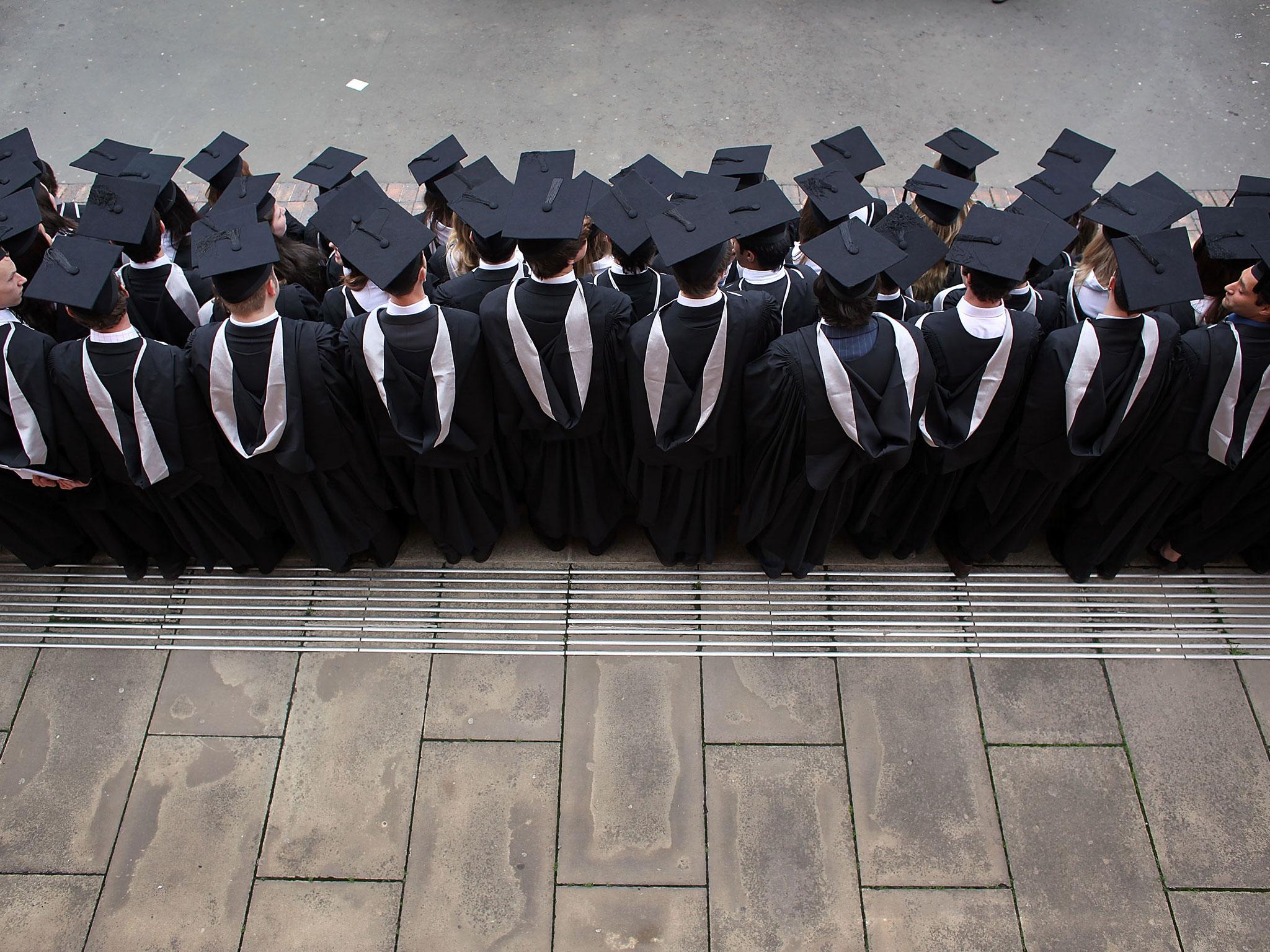White working-class boys forced to hide their identities in order to get through university, says report
They're also put off going to university because some well-known figures have made their wealth without having gone

Your support helps us to tell the story
From reproductive rights to climate change to Big Tech, The Independent is on the ground when the story is developing. Whether it's investigating the financials of Elon Musk's pro-Trump PAC or producing our latest documentary, 'The A Word', which shines a light on the American women fighting for reproductive rights, we know how important it is to parse out the facts from the messaging.
At such a critical moment in US history, we need reporters on the ground. Your donation allows us to keep sending journalists to speak to both sides of the story.
The Independent is trusted by Americans across the entire political spectrum. And unlike many other quality news outlets, we choose not to lock Americans out of our reporting and analysis with paywalls. We believe quality journalism should be available to everyone, paid for by those who can afford it.
Your support makes all the difference.The underrepresentation of white working-class boys at university has surfaced again, this time in a report which says they feel forced to hide their identities in order navigate the world of higher education (HE).
Parents should be also be targeted as part of efforts to increase white working-class boys’ participation in HE, and efforts to increase numbers at university level should begin at primary school, it adds.
Commissioned by the widening participation department at King’s College London (KCL), the report comes less than a week after an historic decision to bring responsibility for universities and skills into a newly-expanded Department for Education. It also comes after new Prime Minister Theresa May said in her first speech before entering number 10: “If you’re a white working-class boy, you’re less likely than anybody else in Britain to go to university.”
Director of widening participation at KCL, Anne-Marie Canning, has explained: “The model of what it means to go to university is: you go to university and you don’t come home. And actually, for a lot of kids, they want to go home, and their ties to home are a positive thing not a negative thing. I don’t think our model of outreach necessarily always speaks to that.”
The report has also suggested that white working-class boys are being put off going to university because well-known figures who have made a lot of money have done so without going into HE.
One headteacher told the report’s researchers that white working-class boys at his school are exposed to two messages - via the media and peer networks - that have a particularly strong influence on their perceptions of university.
“Firstly, they are aware of high profile cases of entrepreneurs who have not gone to university, or who have not completed their courses, and have still gone on to achieve success in the labour market,” says the report. “Secondly, they have friends who have gone away to university and returned to the same low-paid jobs they were doing before they left for their studies, only now saddled with debt.,” it adds.
It is hoped report will prove “invaluable” to the newly-appointed Education Secretary, Justine Greening , who is the first in the role to have attended a fully comprehensive secondary school, and who is expected to make social mobility for white working-class communities a priority.
The report’s lead author, Dr Sam Baars, acknowledged how low attainment at school accounts for much of the problem of low participation in HE by white working class boys. However, it does not “explain it away,” he added.
Dr Baars continued: “Likewise, higher tuition fees appear not to have driven participation rates downward. This report therefore digs beneath these factors and asks what it means to be a white working class boy and how this can make it more difficult to progress to higher education. We find that fears about the value of higher education in the workplace and a lack of knowledge about applications and interviews are key barriers to participation.”
Director of widening participation at KCL, Anne-Marie Canning, added: “This important report is essential in helping schools and universities improve the progression rates for white working class pupils to HE. The report recommends that working with white working class pupils from an early age and engaging parents are key in ensuring all young people have the opportunity to participate in HE.”
Join our commenting forum
Join thought-provoking conversations, follow other Independent readers and see their replies
Comments